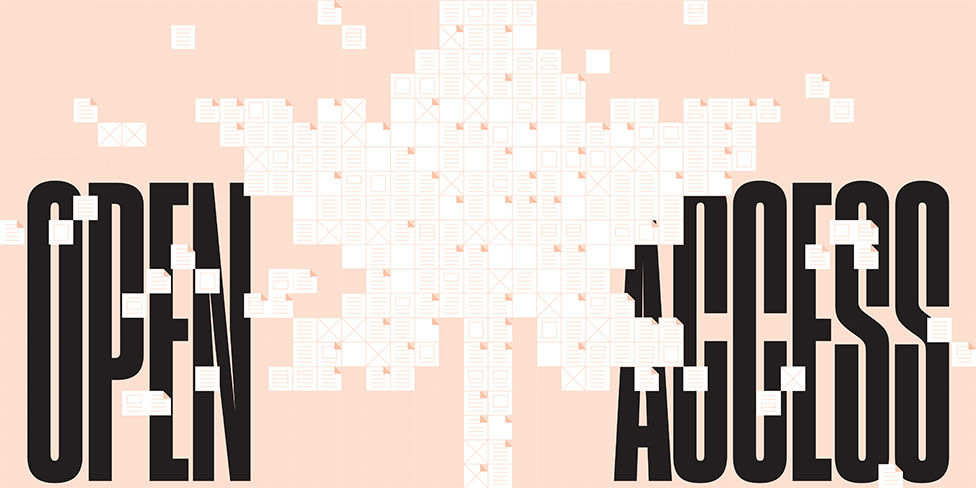The realities of journal publishing: a view from Canada’s not-for-profits
Canadian publishers produce more than 200 scholarly journals, many bilingual and some more than 100 years old.

A March 2019 CBC report, “Why does it cost millions to access publicly funded research papers? Blame the paywall,” described how journal publishers profit from the free labour of their customers. The article emphasized the “excessive profits being taken” by publishers, who “make profit margins [of] around 40 percent.”
But the CBC article fell short by omitting an important component: the many journals that are published right here in Canada, most of which are run as not-for-profits.
Well over 200 scholarly journals are produced under not-for-profit models in Canada. They are available for modest subscription prices – typically half the price of titles from the large commercial publishers. Publishers like the University of Toronto Press Journals Division, Canadian Science Publishing (formerly NRC Research Press) and the Canadian Institute for Studies in Publishing – Journal Services collectively publish more than 80 journals, many of them bilingual. Some have been publishing for more than a century and they are all held in high regard by the research community.
The Canadian Association of Learned Journals (CALJ-ACRS), Canada’s national association for scholarly journals, is fully aware of the tensions between the large STEM publishers and academic librarians, by far the predominant customers for the products of the “big five” oligopoly of journal publishers (as described by Université de Montréal’s Vincent Larivière). We are also aware of the reason libraries focus mainly on their relations with these publishers: because the products they offer account for such a large percentage of acquisitions budgets.
CALJ would like to highlight to the media, researchers, Canada’s research funders, academic librarians and senior university administrators the value and expertise Canada’s not-for-profit journals represent. We call for more collaboration between all parties. We envision that such a collaboration would see Canada’s journals play an increasingly important role in providing concrete and long-lasting solutions to the problems libraries are facing, namely in dealing with the “excessive profits” of the big five international journal publishers.
The CBC could have provided a more complete story if they had reached out to members of CALJ, who would have highlighted the cost-effectiveness of the Canadian journal publishing environment. In Canada, things can be done differently. Despite the well-known worldwide challenges nearly all journals face, such as annual subscriptions cancellations and the diminution of support for the necessary editorial process, our journals attract millions of article views each year. The cost of access can amount to less than $0.05 per article. This represents great value for money. But without sustained revenue, these journals could very well disappear.
Funders and institutions need to bolster the existing knowledge base and infrastructure for journal publishing. This includes providing resources for libraries to purchase and support Canadian journals – and for journals to pay professional editors for their work and to adopt digital technologies. Doing so would allow Canada’s journals to increase their ability to publish a greater share of Canadian and international research at very affordable prices.
Statements in the CBC coverage, such as “publicly funded scientists do the research, write the papers and act as peer reviewers for their colleagues’ work without remuneration from publishing companies,” leave readers with the impression that publishers add nothing of value to the dissemination of research. They imply that fully conceptualized, easily understood, copy-edited and beautifully laid-out articles spring from the minds of researchers and are ready for simple uploading to the internet. Not to mention the assumption that the articles will reach their targeted audiences and beyond without the help of effective marketing strategies offered by publishers. They also imply that there is no informational and researcher-career value in journals of repute.
The evidence demonstrates otherwise. The nature and costs of scholarly publishing start where the researcher and their peers leave off: with copyediting, fact- and citation-checking, layout, illustration creation, proofreading, marketing and building authoritative brands that other researchers can rely on for authority.
We encourage Canada to recognize
(1) journals as part of the research process,
(2) the value of its own national journals, and
(3) the importance of not forgetting them when looking for solutions to the high cost of journal packages.
We invite researchers, libraries, funders, journals and those who specialize in scholarly communications to work together to protect our journals from international pressures currently facing all of us who work within this sphere. To learn more about CALJ, please visit our website or contact us at ad***********@ca*******.ca.
This article was written by the board of directors of the Canadian Association of Learned Journals. The board consists of Emmanuel Hogg (president and managing editor of Histoire sociale / Social History), Suzanne Kettley (past-president and executive director of Canadian Science Publishing), Rowland Lorimer (secretary-treasurer and retired director, masters of publishing, Canadian Centre for Studies in Publishing at Simon Fraser University), Antonia Pop (senior manager of the journals division at University of Toronto Press), Eugenia Zuroski (editor of eighteenth-century fiction), Lauren Bosc (managing editor of Jeunesse), and Suzanne Clavette (managing editor of Relations industrielles/Industrial Relations). CALJ’s current executive director is Ken Clavette.
The CALJ thanks Letitia Henville for her editorial suggestions during the drafting of this manuscript. Dr. Henville writes the column “Ask Dr. Editor” for University Affairs.
Featured Jobs
- Education - (2) Assistant or Associate Professors, Teaching Scholars (Educational Leadership)Western University
- Business – Lecturer or Assistant Professor, 2-year term (Strategic Management) McMaster University
- Psychology - Assistant Professor (Speech-Language Pathology)University of Victoria
- Veterinary Medicine - Faculty Position (Large Animal Internal Medicine) University of Saskatchewan
- Canada Excellence Research Chair in Computational Social Science, AI, and Democracy (Associate or Full Professor)McGill University















Post a comment
University Affairs moderates all comments according to the following guidelines. If approved, comments generally appear within one business day. We may republish particularly insightful remarks in our print edition or elsewhere.
1 Comments
Nicely articulated, CALJ Board.
One of the ironies here is that many of the big journals that charge the big bucks, though typically considered “reputable,” do NOT copy-edit and fact-check the papers they publish. This is not so different from the growing business of predatory publishing, a swarm of new journals that will publish almost anything for a fee, under the auspices of a journal name that looks scholarly. On top of those challenges is the growing expectation (including funding policy changes by the EU) for all published papers to be open access, and to have original data archived and available for review. Implementing policies for open-access journals begs for a funding model that does not put poorly funded researchers at a disadvantage; perhaps it is time for greater public investment in Canada’s not-for-profit publishing sector to assure continued quality and access to publicly funded research. The old dusty, fuddy-duddy world of quiet academic publishing doesn’t really exist anymore!
Sincerely,
Philip J. Burton,
Co-Editor-in-Chief, Canadian Journal of Forest Research